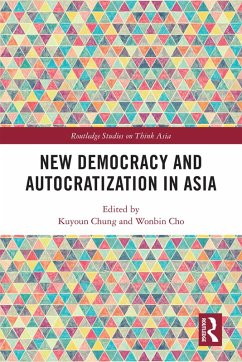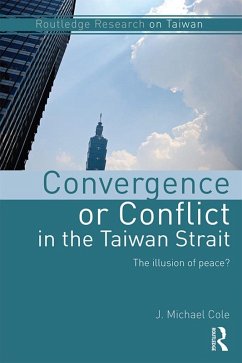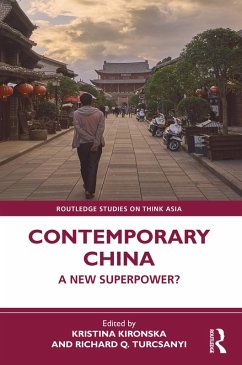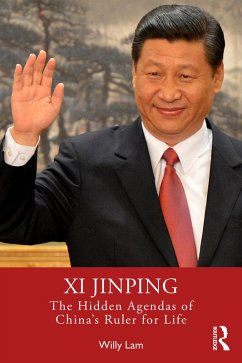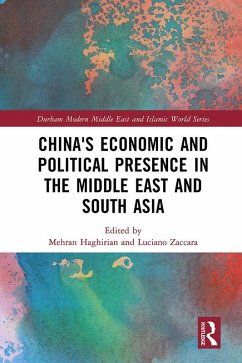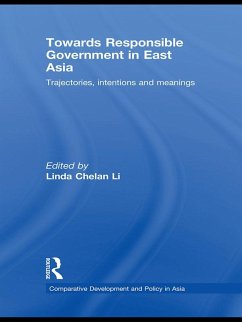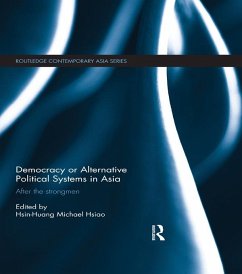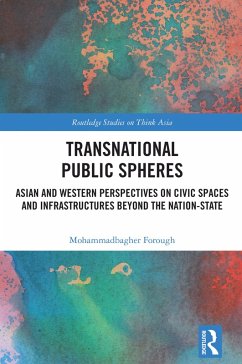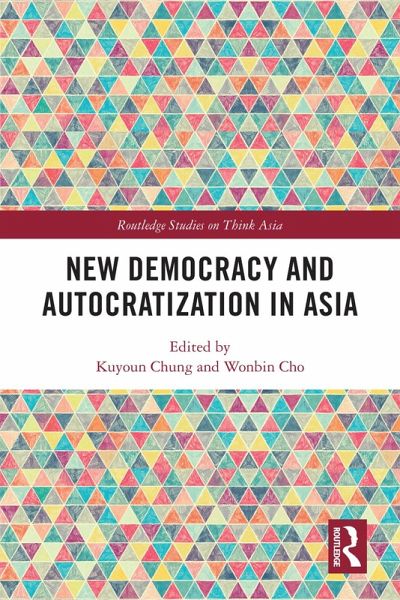
New Democracy and Autocratization in Asia (eBook, ePUB)
Versandkostenfrei!
Sofort per Download lieferbar
39,95 €
inkl. MwSt.
Weitere Ausgaben:

PAYBACK Punkte
20 °P sammeln!
This book examines the quality of democracies in Asia and determines why current democracies-especially during the so-called "new normal" era following the 2008 financial crisis-have become less stable and less resilient to increasing authoritarianism.Based on the assumption that the concept of democracy consists of three elements-procedure (participation, competition, and distribution of power); effectiveness (representation, accountability, and responsiveness); and performance (social welfare, inequality, and trust)-the contributors to this book determine which elements are responsible for d...
This book examines the quality of democracies in Asia and determines why current democracies-especially during the so-called "new normal" era following the 2008 financial crisis-have become less stable and less resilient to increasing authoritarianism.
Based on the assumption that the concept of democracy consists of three elements-procedure (participation, competition, and distribution of power); effectiveness (representation, accountability, and responsiveness); and performance (social welfare, inequality, and trust)-the contributors to this book determine which elements are responsible for diverging trajectories within the Asian democratic recession. Examining South Korea, Japan, Taiwan, Singapore, Vietnam, Indonesia, India, Myanmar, and China, the authors employ different research methods-quantitative, comparative, or individual case studies-to explore the conditions under which democratic rules and norms erode over time, and which type of governance is preferred by citizens in this region as an ideal type. The book puts forward the argument that a procedure-oriented concept of democracy is not sufficient for understanding the source of democratic recession and develops a new concept of "new democracy" based on procedure, effectiveness, and performance. It also demonstrates to what extent the experience changes and how the countries respond to these changes.
A novel contribution on the state of democracy in Asia written by experts from the region, this book will be of interest to academics in the field of political science, especially comparative politics and international relations, regional study of East and Southeast Asia, sociology, public policy, economics, and social science methods. Also, this book will appeal to think tanks and policy-oriented researchers.
Based on the assumption that the concept of democracy consists of three elements-procedure (participation, competition, and distribution of power); effectiveness (representation, accountability, and responsiveness); and performance (social welfare, inequality, and trust)-the contributors to this book determine which elements are responsible for diverging trajectories within the Asian democratic recession. Examining South Korea, Japan, Taiwan, Singapore, Vietnam, Indonesia, India, Myanmar, and China, the authors employ different research methods-quantitative, comparative, or individual case studies-to explore the conditions under which democratic rules and norms erode over time, and which type of governance is preferred by citizens in this region as an ideal type. The book puts forward the argument that a procedure-oriented concept of democracy is not sufficient for understanding the source of democratic recession and develops a new concept of "new democracy" based on procedure, effectiveness, and performance. It also demonstrates to what extent the experience changes and how the countries respond to these changes.
A novel contribution on the state of democracy in Asia written by experts from the region, this book will be of interest to academics in the field of political science, especially comparative politics and international relations, regional study of East and Southeast Asia, sociology, public policy, economics, and social science methods. Also, this book will appeal to think tanks and policy-oriented researchers.
Dieser Download kann aus rechtlichen Gründen nur mit Rechnungsadresse in A, B, BG, CY, CZ, D, DK, EW, E, FIN, F, GR, HR, H, IRL, I, LT, L, LR, M, NL, PL, P, R, S, SLO, SK ausgeliefert werden.




